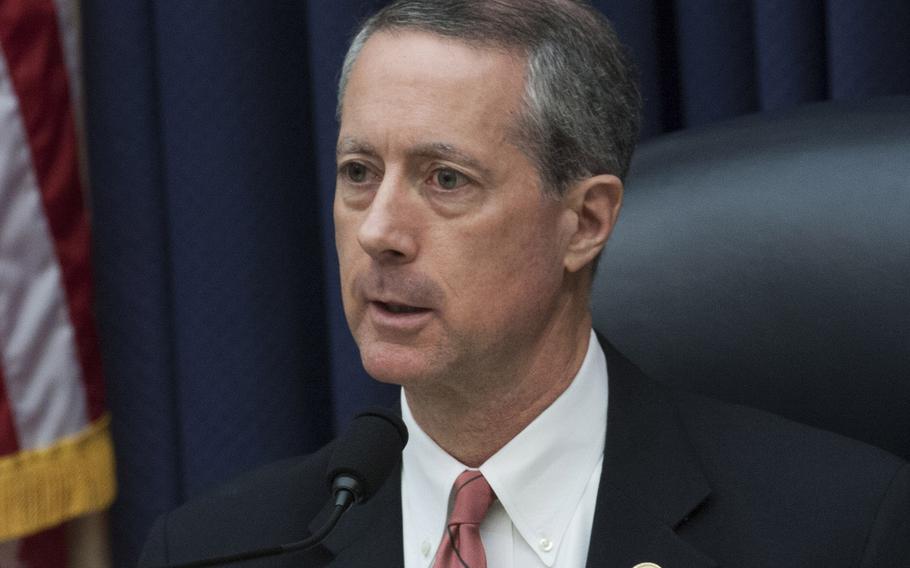
House Armed Services Committee Chairman Rep. Mac Thornberry, R-Texas, during a hearing in February, 2015. (Joe Gromelski/Stars and Stripes)
WASHINGTON — The chairman of the House Armed Services Committee said Tuesday the United States should retain at least the current number of troops in Afghanistan indefinitely to counter a terrorism threat that is unlikely to die out even with the defeat of the Taliban or Islamic State.
Rep. Mac Thornberry, R-Texas, said the country will remain a magnet for terrorist groups due to its history, lawless areas and opium trade, and he called for a freeze on any further military withdrawals under an Obama administration plan to whittle the 9,800 troops there to an embassy security force after 2016.
He cited U.S. bases established in Europe after World War II and bases built in South Korea following the war there in the 1950’s as precedents for a lasting military presence.
The Republican chairman had just returned from a trip to Afghanistan to meet with President Ashraf Ghani and top U.S. commander Gen. John Campbell, who is expected to make recommendations to the White House in the coming weeks on troop levels amid growing reports of Islamic State activity and political pressure to slow any withdrawal.
“Whatever they call themselves, I believe Afghanistan will be a central point for terrorists well into the future … we’ve got to have a presence there to keep up with it and for homeland planning to be able to do something about it,” Thornberry said. “To follow the Iraq model of just having a few people stationed at the embassy, I think, would be a colossal mistake.”
Thornberry and other Republican lawmakers have hammered Obama for his 2011 withdrawal from Iraq, claiming it cleared the way for the Islamic State to sweep in and seize large swaths of territory. The U.S. is now locked in a year-old air and proxy war with the Islamic fighters in Iraq and across the border in Syria.
“I think ISIS has grown faster there [in Afghanistan] than most people in Washington appreciate,” he said, using one of several acronyms for the Islamic State.
A further reduction of troops in Afghanistan could leave the U.S. partially blind to extremist activities there and limit its ability to conduct counter-terrorism operations, Thornberry said.
It would also undermine the military’s relationship with the fledgling Afghan government of Ghani and Chief Executive Abdullah Abdullah, who have been more eager to work with the U.S. than their predecessor Hamid Karzai, he said. The chairman said he did not specifically discuss a lasting military presence during his meeting with Ghani.
“They are doing pretty well but they just don’t know that we’re going to be there with them [in the future],” Thornberry said.
He declined to provide any timeline for keeping troops in the country and also balked at calling his proposal a permanent U.S. presence.
“I don’t know about permanent,” he said. “I don’t know that our bases in Germany and Korea are permanent.”